Bidenomics vs Trumpism: who's promising what for 2024?
Comparing the Biden and Trump visions for 2024
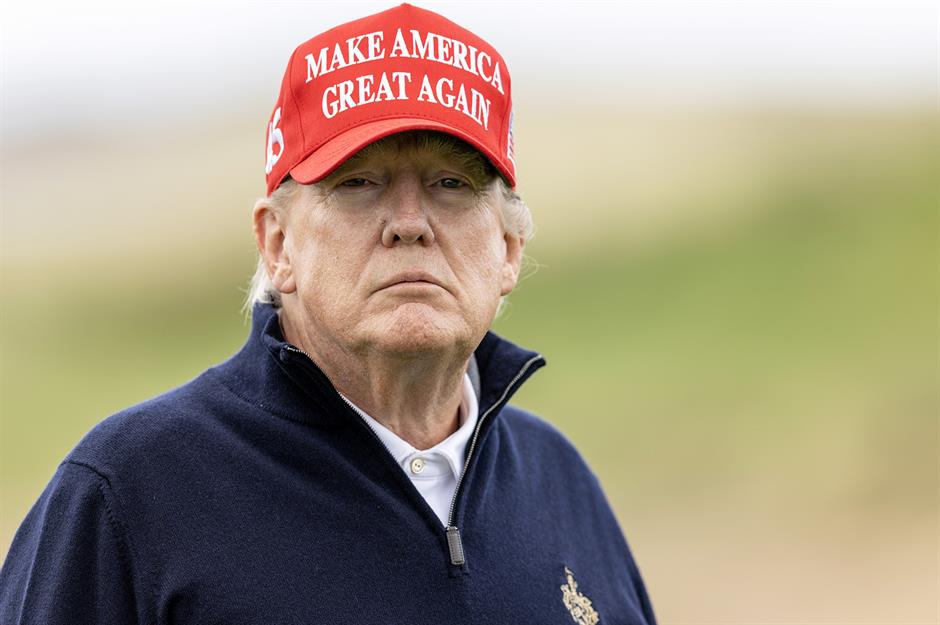
Recent surveys from CNN and the Wall Street Journal revealed that the likely two candidates for the 2024 presidential election, Joe Biden and Donald Trump, are currently tied in the polls. While they're enjoying similar levels of support, their plans for America if they win are significantly different.
President Joe Biden has put the economy at the heart of his 2024 re-election bid. Taking center stage is his 'Bidenomics' ideology. While Trump's vision for the nation if elected to serve again, which people refer to as 'Trumpism,' couldn't be more different to Biden's, there are also a few areas of overlap between the two candidates.
Read on to discover how Bidenomics and Trumpism compare over 15 key policy areas.
All dollar amounts in US dollars.
Bidenomics: general economy
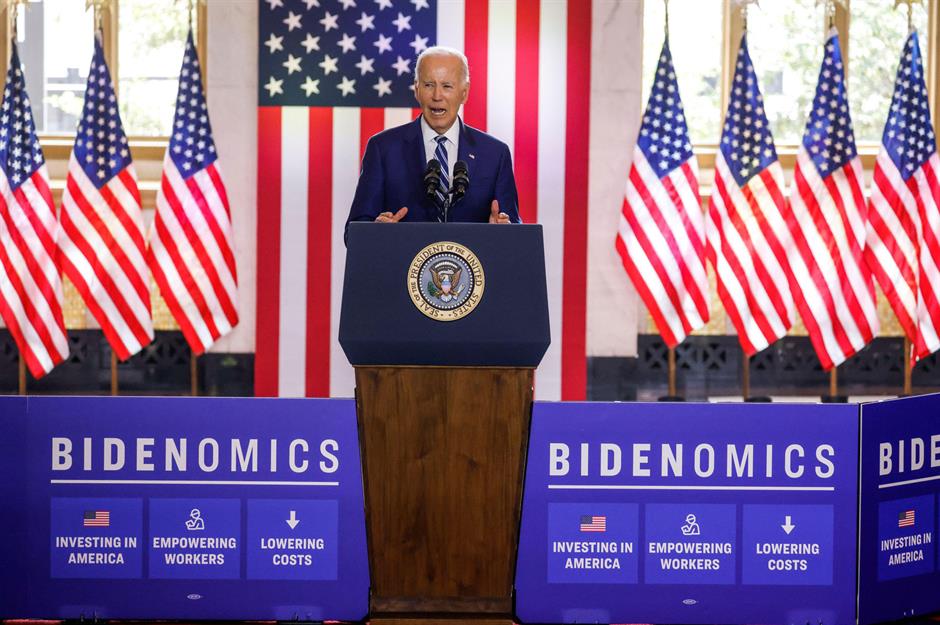
Bidenomics is rooted in classic Keynesian economics and advocates government spending to stimulate growth. That's according to Dr Larry Hill, an economics professor at Lewis University, Illinois, who shared his insights with News Wise in July 2023.
It rests on three core pillars: smart public investing across infrastructure, clean energy, semiconductors, and other areas; empowering and educating workers to boost the middle class; and promoting competition.
Biden is also pressing for tax hikes on the wealthy and the largest multinational corporations and rebates for regular Americans, which is all in keeping with his plan to grow the economy from the middle out and bottom up.
Trumpism: general economy
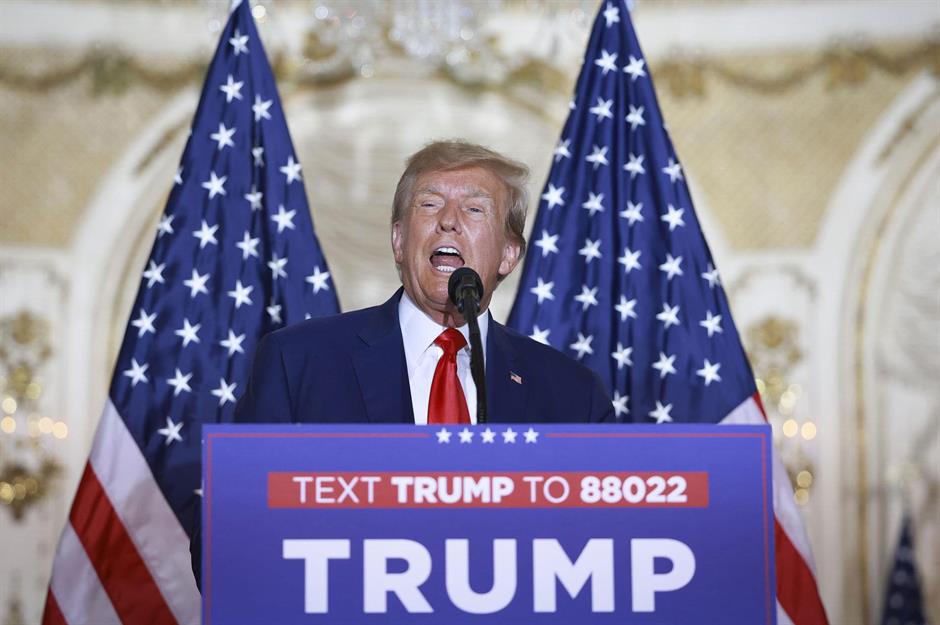
In contrast, Dr Hill notes, Trumpism is classic Adam Smith supply-side economics repackaged: trickle-down economics that calls for tax cuts for large companies and the rich.
Trumpism puts a strong emphasis on deregulation (while Bidenomics espouses tougher regulation), fierce protectionism by levying huge tariffs on foreign-made goods, and strict curbs on immigration. Clean energy expenditure is low on the list of priorities.
Sponsored Content
Bidenomics: infrastructure spending
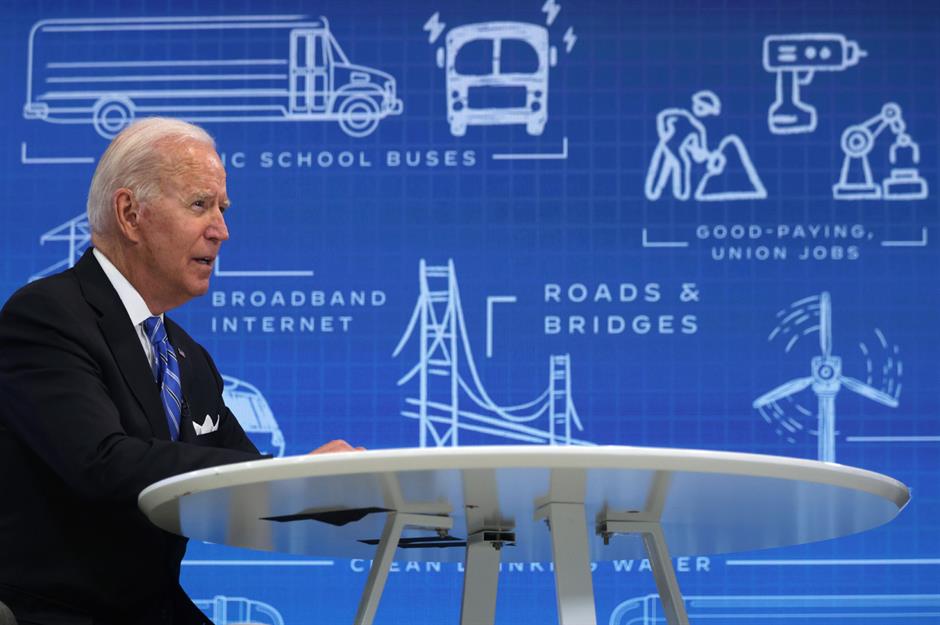
The Infrastructure Investment and Jobs Act (IIJA), Inflation Reduction Act, and CHIPS Act all passed during Biden's current term. Together, the trio provide $2 trillion in federal funding and initiatives for up to a decade.
A total of $550 million has been devoted to overhauling America's tired infrastructure through 2026. Major investment in roads, bridges, mass transit, water infrastructure, resilience, and broadband is underway, with the goals of increasing the country's competitiveness, attracting private investment, and creating a ton of jobs.
Trumpism: infrastructure spending
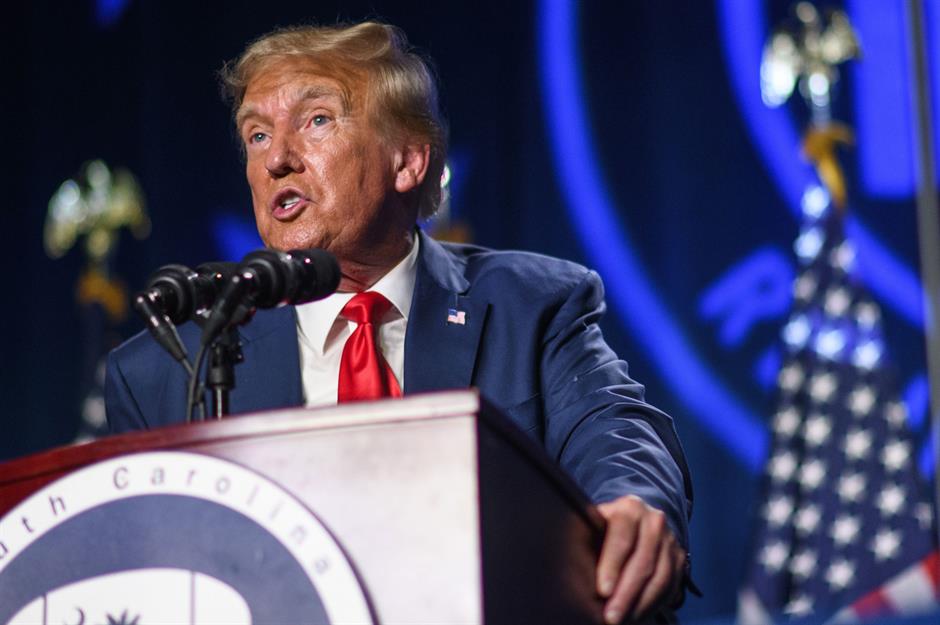
The infrastructure spending proposals touted by Trump during his presidency failed to gain the required support. For 2024, however, the former POTUS is hyping up his "quantum leap" plan for the country.
This will involve building 10 futuristic "freedom cities" from scratch on federal land to boost America's economy and living standards. But investors are shunning policies like Trump's, which embrace big spending along with tax cuts for the rich, and require heavy borrowing and a reliance on low inflation to work.
Bidenomics: energy
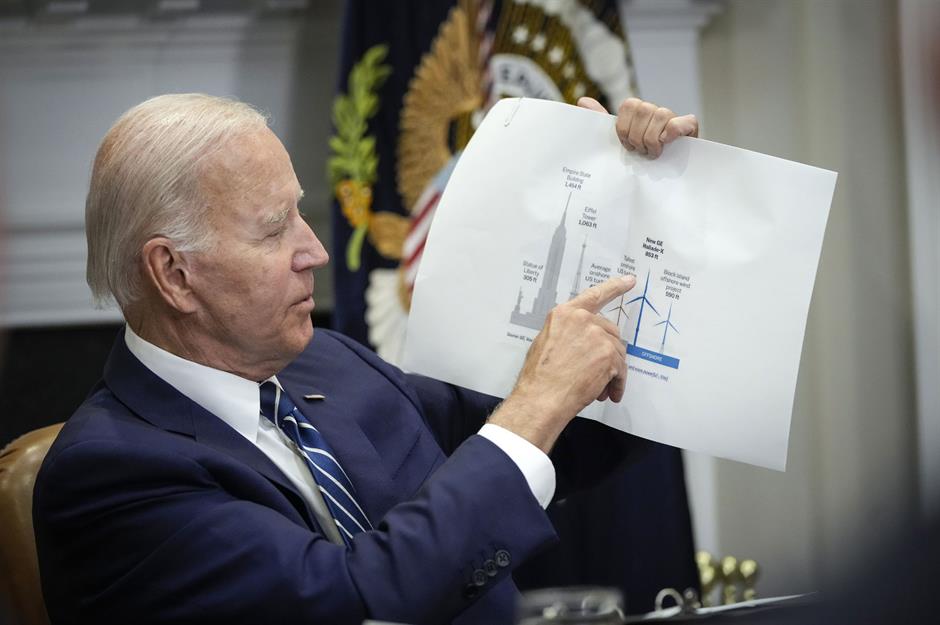
Biden caused consternation among environmental campaigners earlier this year by green-lighting an $8 billion oil project in Alaska. For the most part, however, the current POTUS is touting clean energy above all else.
In fact, the $369 billion Inflation Reduction Act has been hailed as the largest investment in clean energy in American history and has the ultimate goal of making America carbon neutral by 2050.
The legislation, which offers lavish tax breaks for clean energy projects, has already spurred an investment boom in wind, solar, and other green energies, while electric vehicle (EV) sales are flourishing thanks to rebates of up to $7,500 per vehicle.
Sponsored Content
Trumpism: energy
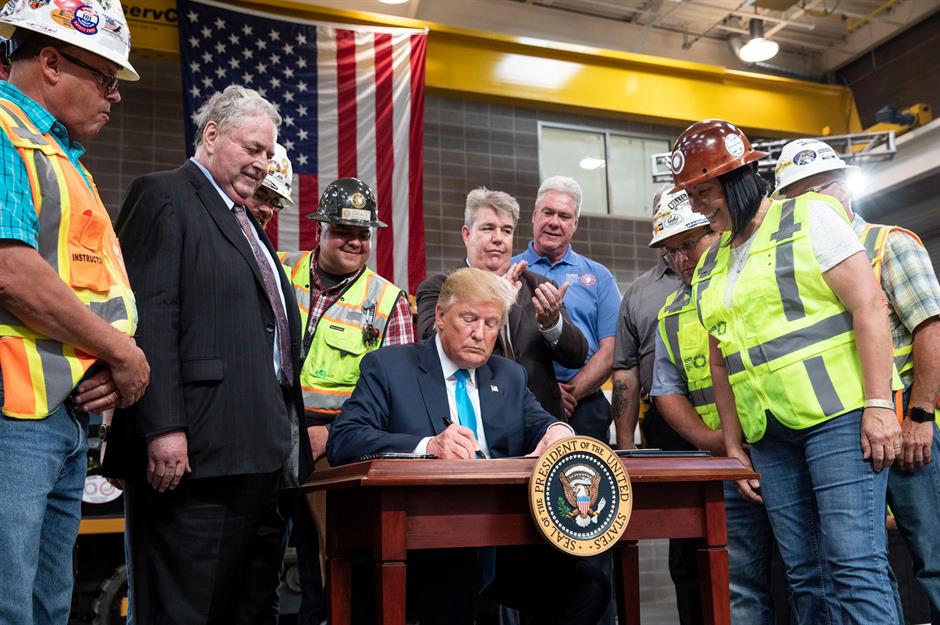
A consistent climate change denialist who has claimed that the noise generated by wind farms can cause cancer, Trump is yet to detail his energy plans for 2024.
However, a Climatewire report suggests plans will likely include proposals to increase oil and natural gas production, limit federal funding for projects that exclude fossil fuels, and roll back Biden's tax breaks for clean energy.
In his own words, Trump is keen to "unleash [America's] energy dominance," meaning deregulation and additional drilling will likely win out.
Bidenomics: education
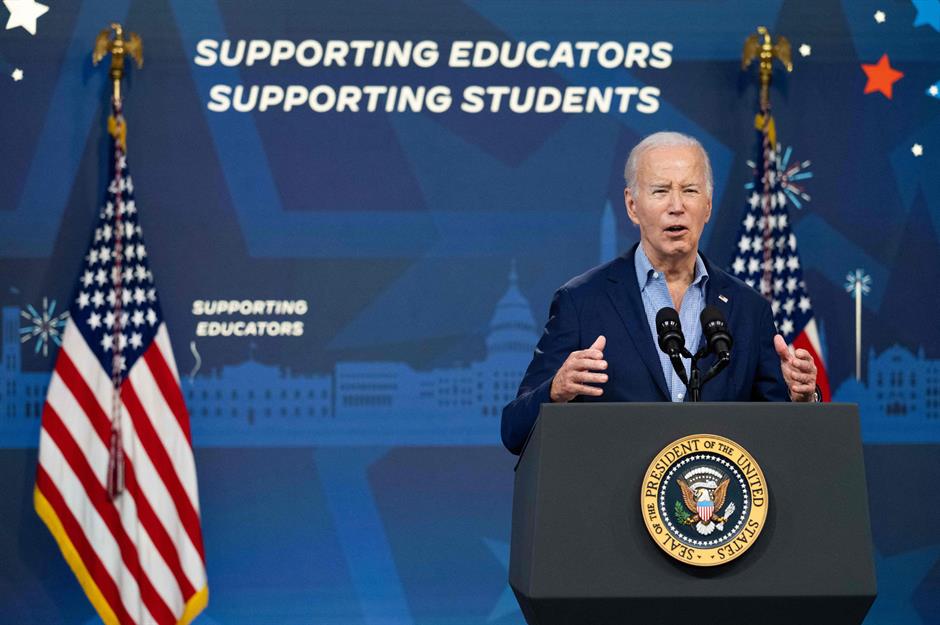
As one of the three pillars of Bidenomics, educating and empowering Americans is at the crux of the current president's plan to grow the nation's middle class.
The Biden administration is investing more than any previous US government in registered apprenticeships and technical education programs, and has been advocating for free universal pre-kindergarten and community college. The administration has also begun wiping out $39 billion in student loan debt for 804,000 borrowers.
Trumpism: education
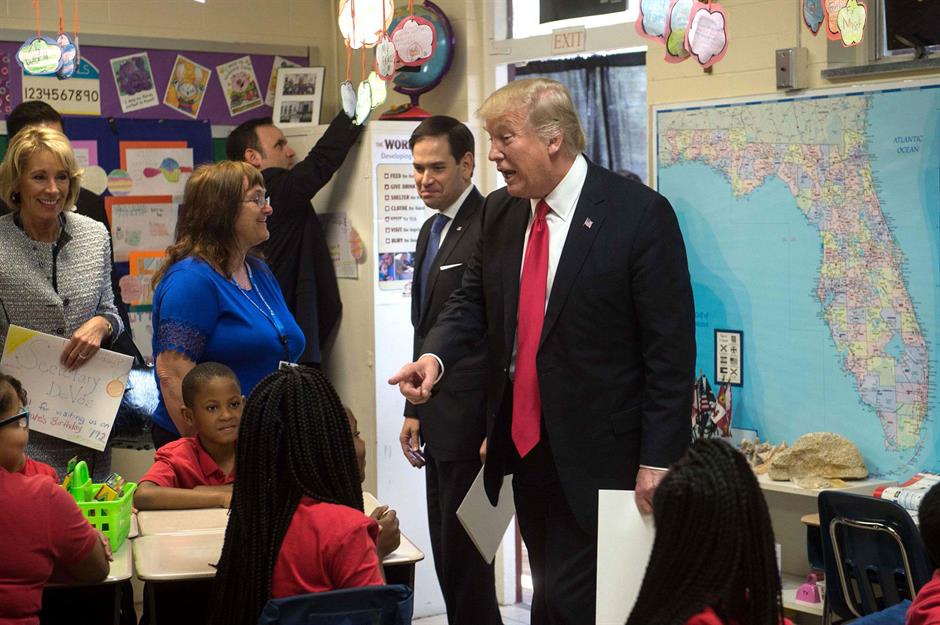
On the flip side, Trump has described Biden's student loan forgiveness policy as "very unfair." His education policy is centered on battling America's culture wars with a raft of proposals, including cutting federal funding for schools that promote critical race theory and gender ideology.
Trump is also looking to slash admin staff numbers and wants parents to elect school principals. He is planning an overhaul of discipline and is even toying with abolishing the Department of Education and arming teachers with guns.
Sponsored Content
Bidenomics: unions
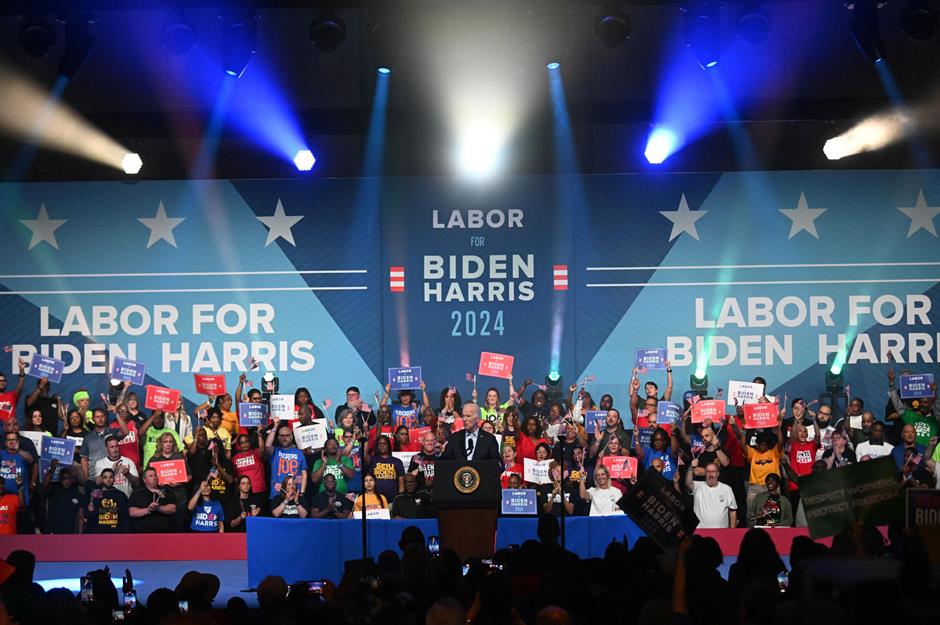
Biden previously said he intends to be "the most pro-labor union president" in American history. As part of his effort to empower American workers, the current POTUS is going all out to make it easier for them to join a union.
This pro-union attitude has already paid off, with the recent $170,000-a-year deal with UPS drivers a case in point – so it's little wonder Biden has the overwhelming support of the country's labor unions.
Trumpism: unions
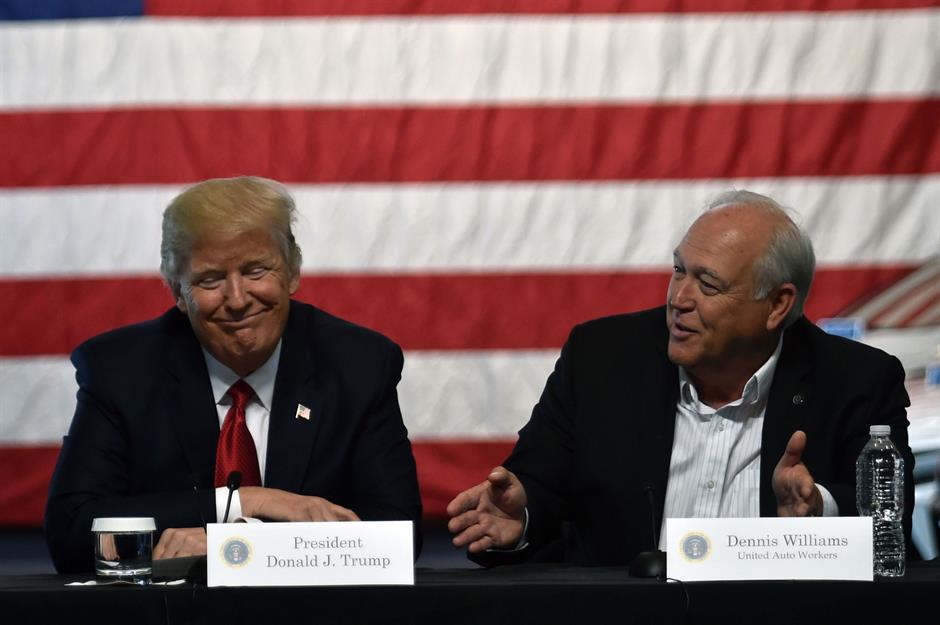
One of the few unions not backing Biden's re-election bid is the United Auto Workers (UAW), whose members, aggrieved at the Biden administration's funding of non-union EV suppliers, are being courted by the Trump campaign.
They may end up regretting such a change in allegiance. As per Trump's Project 2025, a potential second term would likely see workers' rights severely eroded.
The administration would also likely make it harder for workers to form unions – and easier for companies to classify employees as independent contractors.
Bidenomics: immigration

The Biden administration has taken a multi-pronged approach to tackle the crisis at the southern border and "rebuild a safe, orderly, and humane immigration system." This includes increased funding to shore up border security, address immigration backlogs, and enhance legal pathways.
But while Trump administration policies, such as the infamous border wall, were canceled by Biden, the current president has been seen by some to have moved to the right in terms of immigration policy. A Newsweek poll published in July 2023 found that the majority of Americans are unhappy with the government's handling of illegal immigration.
Sponsored Content
Trumpism: immigration

Trump plans to pull out all the stops to stamp out illegal immigration. He intends to "fully secure" the southern border, end mass unskilled immigration, and introduce a complete ban on using taxpayer dollars "to free illegal aliens," with criminal penalties for non-compliance.
Trump has called the influx of illegal immigrants "a massive invasion," which he blames on President Biden's "lawlessness." The 45th POTUS has also vowed to impose the death penalty on drug traffickers.
Bidenomics: Made in America
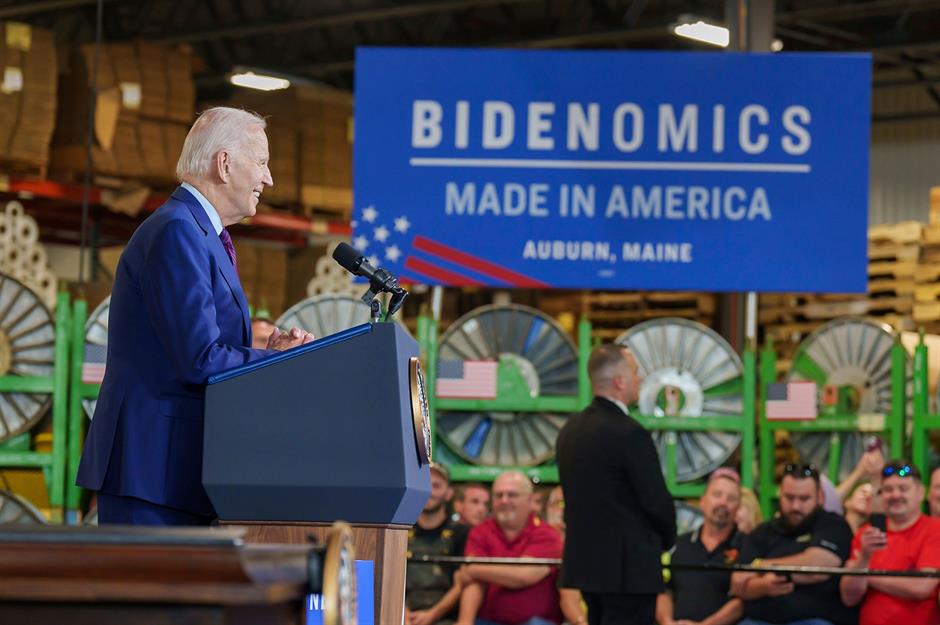
Protectionism is central to both 2024 candidates' plans to revitalize the US economy.
For instance, Biden's IIJA stipulates that products and materials used in federally funded infrastructure projects must be American-made, which will stimulate the country's manufacturing sector. This covers everything from fiber-optic cables to drywall and glass.
House Democrats are also bolstering the current administration's insistence on American-made products, with a slew of relevant bills recently introduced. These include ensuring that US flags purchased by the government are made in the country, as well as guaranteeing that the Navy builds its ships in America using American materials.
Trumpism: Made in America
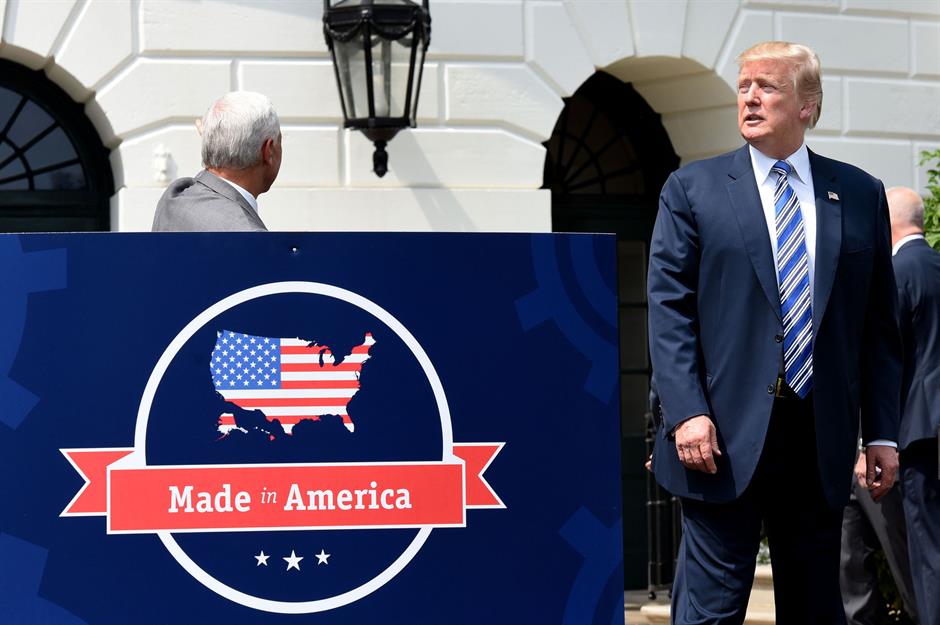
Biden has been accused of stealing some of Trump's populist protectionist ideas, with commentators arguing that the current POTUS is succeeding where his predecessor failed.
That said, Trump intends to be even more aggressive than Biden with his "America First" protectionist policies. He plans to reward domestic production and tax foreign companies that export American jobs, slap punishing tariffs on foreign-made products, and end America's reliance on China once and for all.
Sponsored Content
Bidenomics: manufacturing

As we've mentioned, bringing manufacturing back to the US is a major principle of Bidenomics.
The federal funding outlined in the Biden administration's IIJA and other key pieces of legislation is already working wonders on the country's manufacturing sector, with the construction of new factories hitting unprecedented levels as companies reshore to the US like never before.
Trumpism: manufacturing
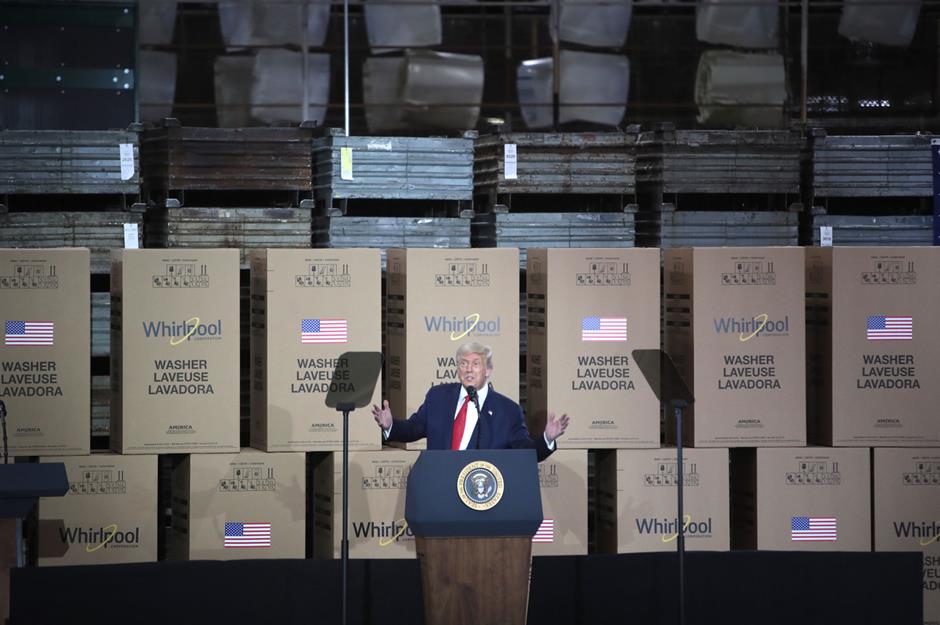
Trump is singing from a similar hymn sheet, as he has done for years – although his record for bringing manufacturing jobs back to the US wasn't hugely impressive during his presidency.
Pre-COVID, manufacturing employment grew by only 1% annually under Trump, similar to the growth figures recorded during the Obama years. Trump is also putting far more emphasis on tariffs as a means of expanding America's manufacturing sector.
Bidenomics: tariffs
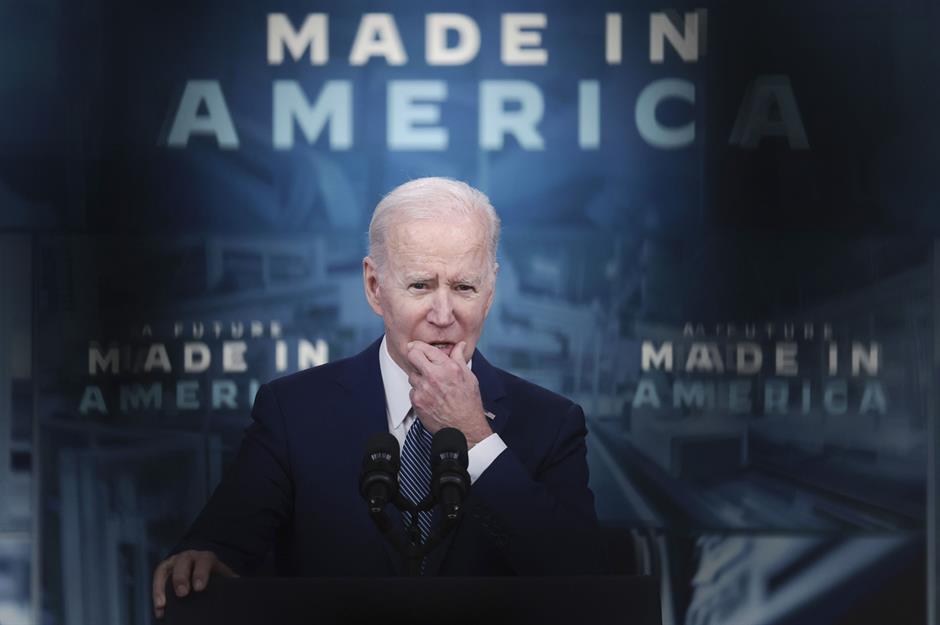
When it comes to tariffs, the Biden administration has quietly retained the penalties levied on $350 billion of Chinese goods that Trump introduced, though they are reportedly under review.
Be that as it may, the current president rarely talks about imposing tariffs on foreign goods. These types of comments have previously been shown to be counterproductive and hurtful rather than beneficial toward the US economy – although they remain popular among the American public.
Sponsored Content
Trumpism: tariffs
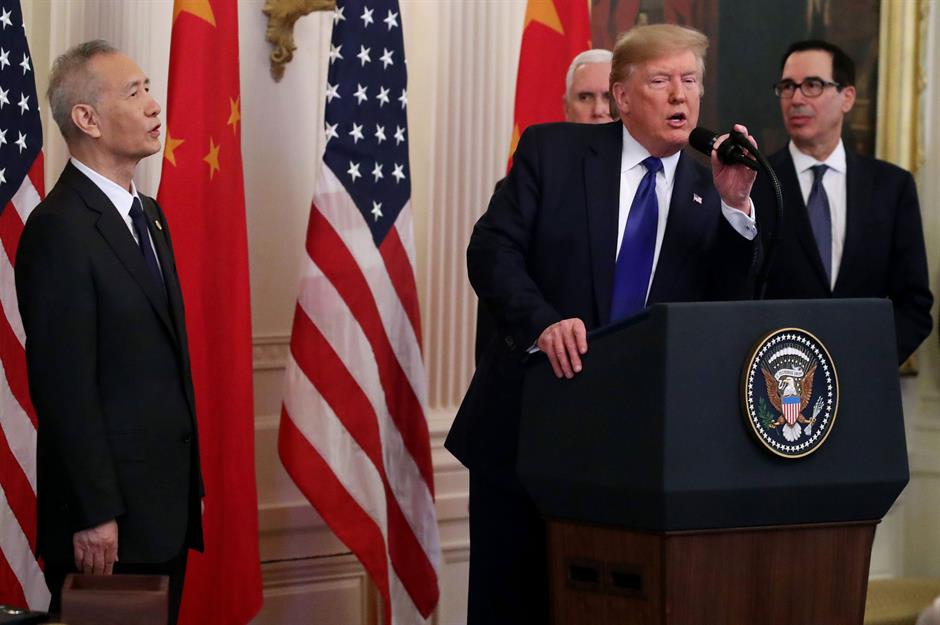
On the contrary, tariffs are an enormous part of Trump's economic policy. The 2024 hopeful plans to slap universal baseline tariffs on most foreign products, including those exported by America's allies.
But the heaviest duties will be reserved for products emanating from China. In his own words, Trump fully intends to "tax China to build up America," no matter what the consequences might be.
Bidenomics: China
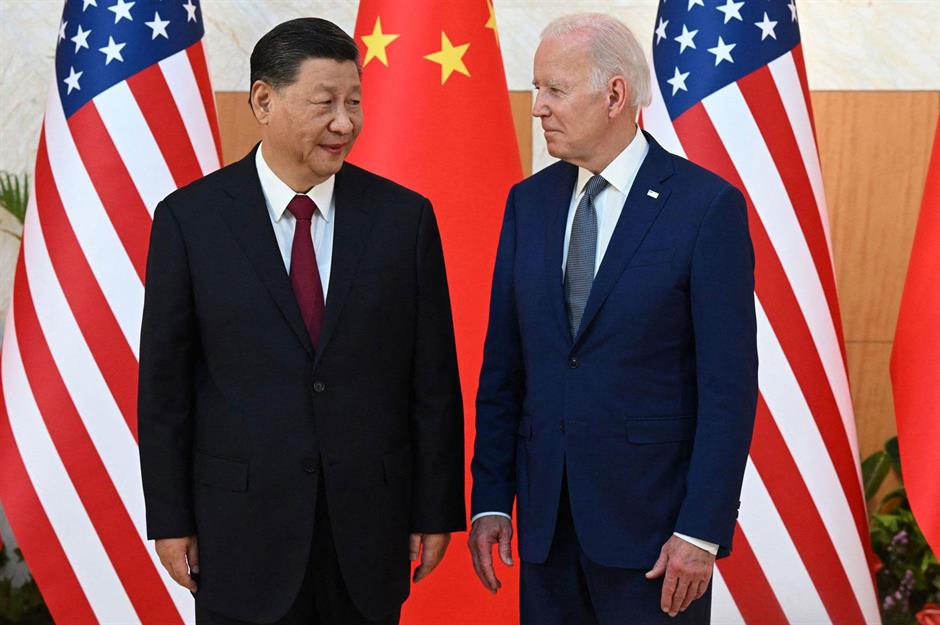
On that note, both of the 2024 hopefuls are keen to reduce America's dependence on China, though Biden's approach is less inflammatory than Trump's.
On top of retaining the Trump tariffs and doing all it can to encourage reshoring and friendshoring, the Biden administration recently moved to impose restrictions on American investment in advanced tech industries in the People's Republic, which it says are necessary to protect US national security.
Trumpism: China
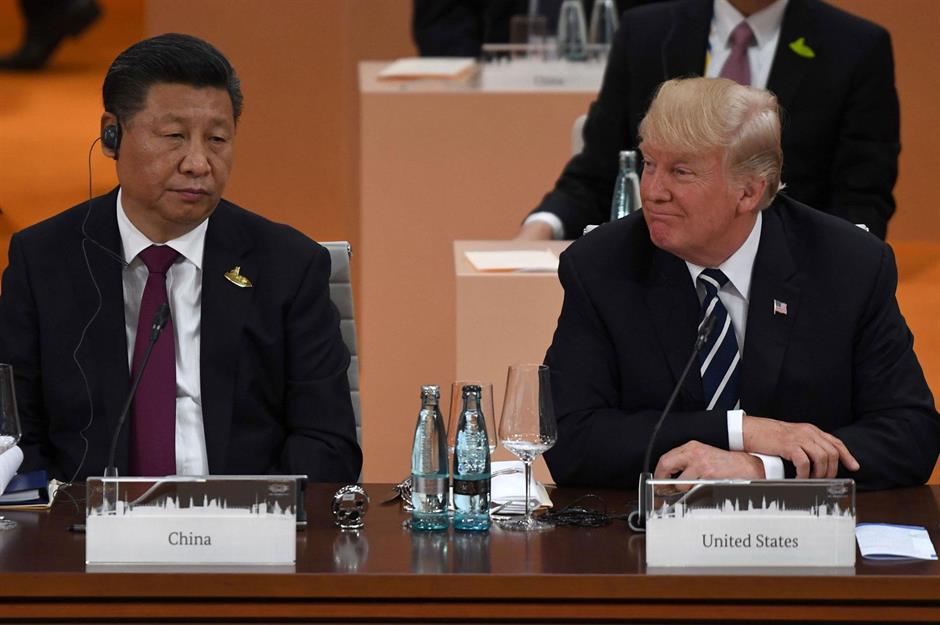
Trump intends to go a lot further than Biden.
Firstly, he plans to phase out all Chinese imports of essential goods within four years. Trump is also looking to revoke China's "most favored nation" trade status (also referred to as permanent normal trade relations status or PNTR), which the country has enjoyed since 2001 and qualifies it to pay relatively low tariffs on exports to the US.
Removing this status would sharply raise levies on the staggering half-a-trillion-dollars-plus worth of goods imported annually from the People's Republic.
In addition, Trump wants to ban federal contracts for companies that outsource to China, outlaw Chinese ownership of critical US infrastructure and farmland, and stop American firms from investing in China, period.
Sponsored Content
Bidenomics: taxes
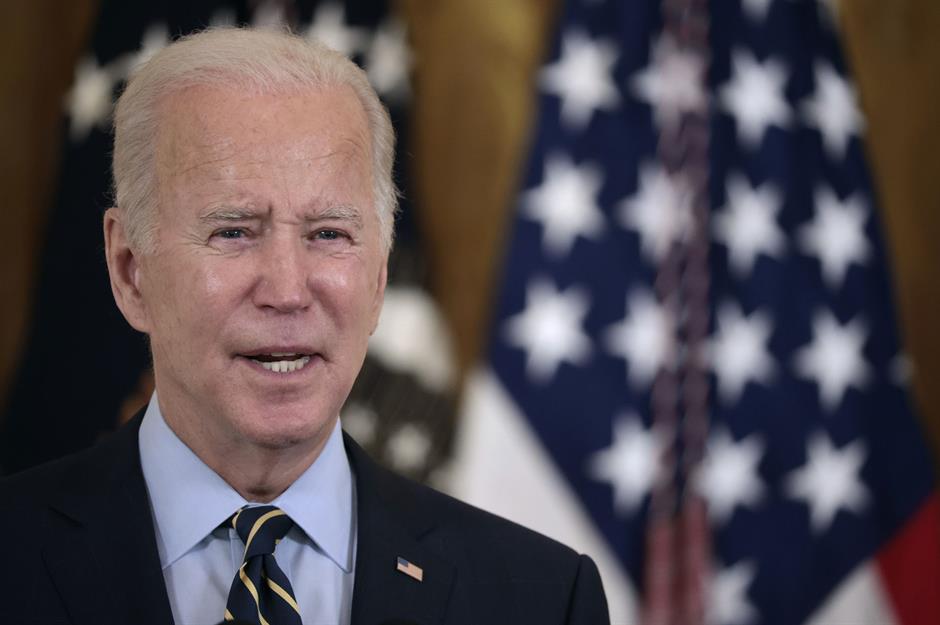
The Biden administration is committed to closing the tax loopholes that benefit the richest in society.
By way of example, its budget for the 2024 fiscal year introduces a number of tax increases that target major corporations and high-income individuals (those earning at least $400,000 a year), which would boost government coffers by almost $4.8 trillion.
This money will help fund the government's raft of spending on infrastructure and other projects.
Trumpism: taxes
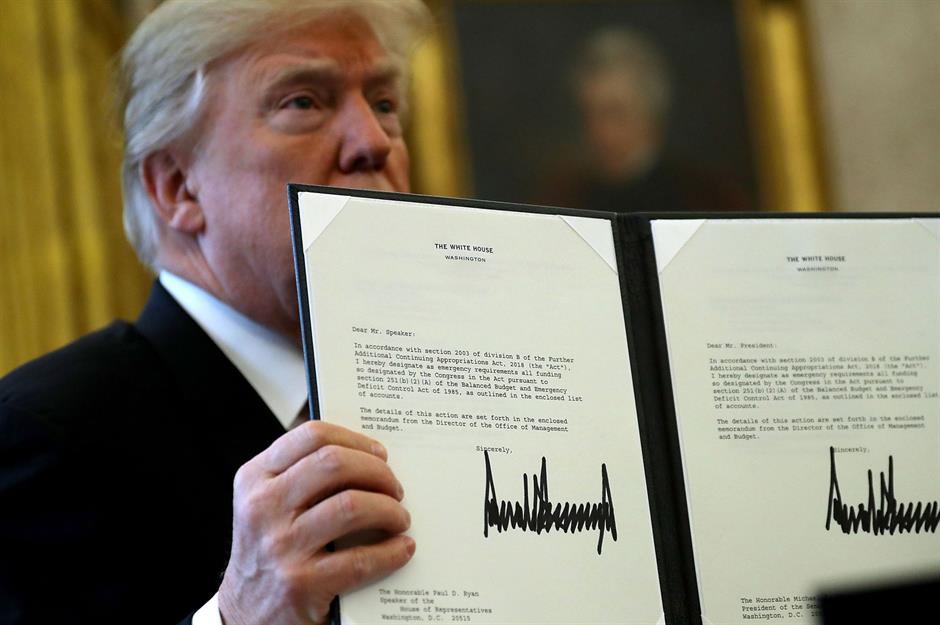
Trump's sweeping tax breaks, which were skewed to the wealthiest Americans, are due to expire on December 31, 2025. If Trump is re-elected, it's likely they'll be retained, while a second Biden term could see the tax breaks scrapped or at least recalibrated in favor of less affluent Americans.
Trump believes taxes on US businesses would plummet once his eye-watering tariffs kick in, claiming: "As tariffs on foreign producers go up, taxes on American producers will go down, and go down very substantially."
Bidenomics: competition
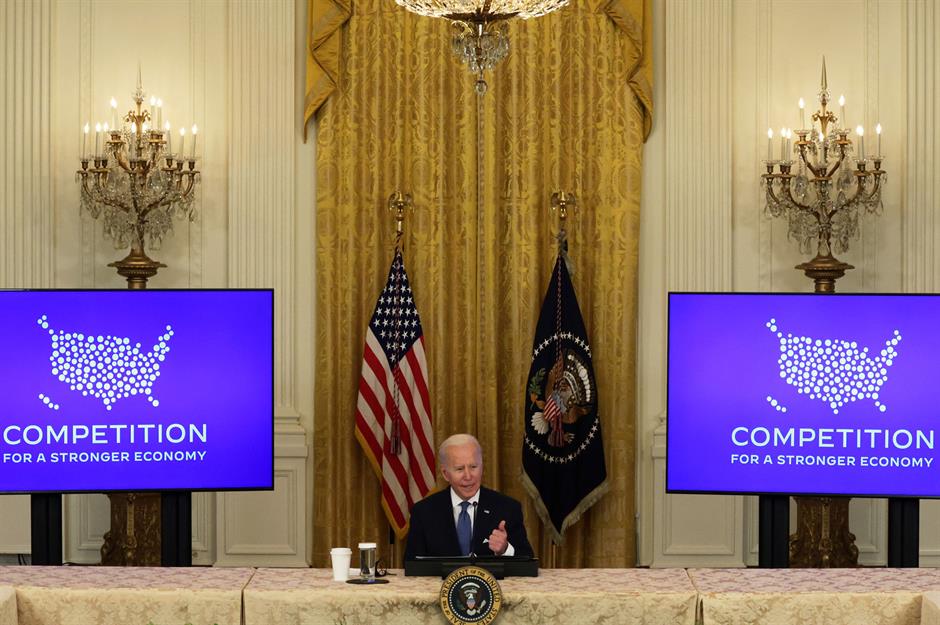
'Healthy competition' is a crucial component of Bidenomics and should theoretically result in lower costs and higher wages. Much work is being done by bolstering US businesses via the IIJA and other laws, although Biden has also waged war on monopolies.
One of the first executive orders he signed upon assuming office committed the US government to "full and aggressive enforcement" of antitrust legislation, the results of which are already bearing fruit.
For example, the Biden administration has been successful in slashing the cost of hearing aids, breaking what some analysts have described as a 'cartel' of four businesses that had been able to keep prices artificially high for many years.
Sponsored Content
Trumpism: competition
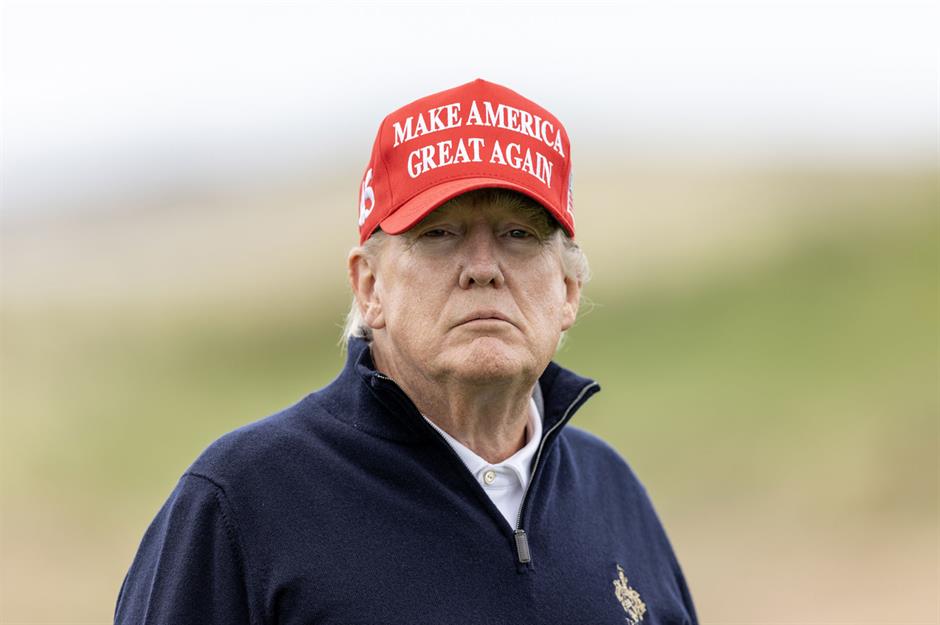
Trump's embrace of tariffs actually made America less competitive internationally, as demonstrated by the nation dropping down the Institute for Management Development's World Competitiveness Ranking from 3rd place in 2019 to 10th in 2020. As of 2023, the US now sits in 9th place.
And unlike Biden, Trump has no problem with monopolies. His administration saw a series of mega-mergers, and it's likely that a second Trump administration would be just as keen for businesses to consolidate under its watch.
Bidenomics: regulation
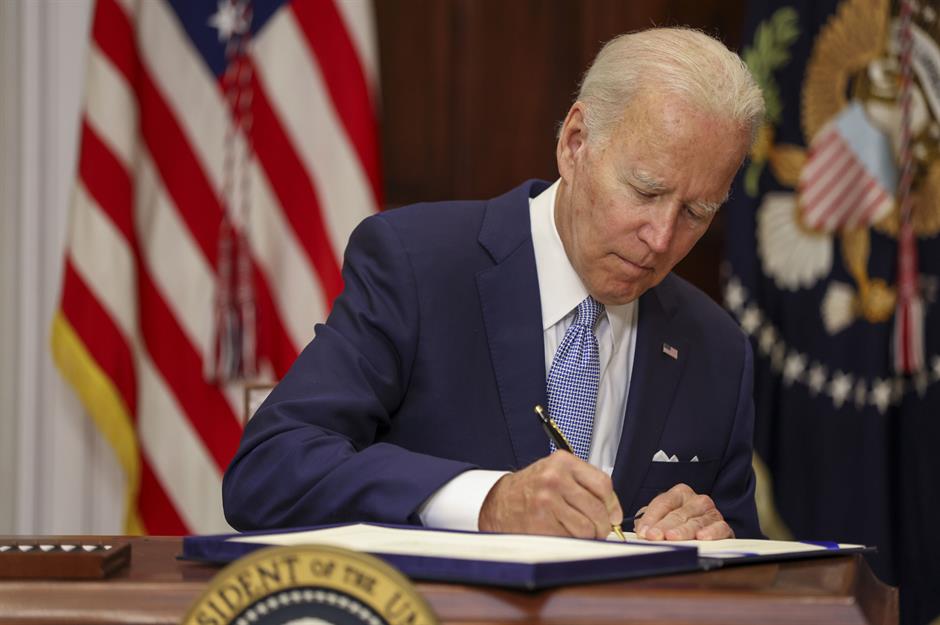
Republican House Speaker Kevin McCarthy has decried Biden's "blind faith in government spending and regulation." The right considers regulation expensive, anti-business, and bad for jobs. The left sees it as vital for maintaining standards and increasing competition by deterring monopolies and fostering innovation, which actually creates jobs.
A proponent of the latter way of thinking, Biden is currently engaged in a "summer regulatory onslaught" (as The Wall Street Journal puts it), and Americans can expect even tighter regulation if he wins a second term.
Trumpism: regulation
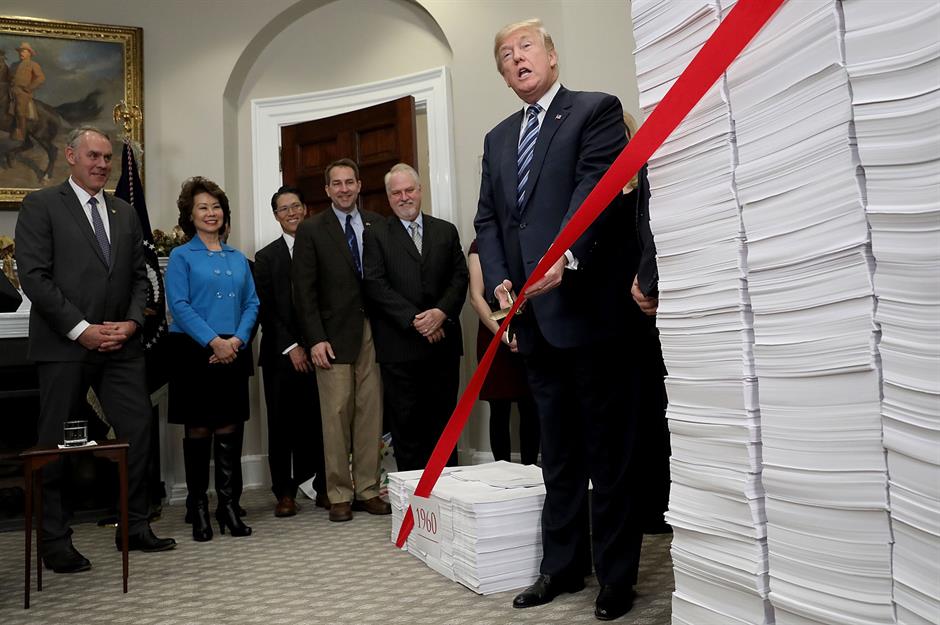
Trump is one of the biggest critics of Biden's "wasteful and job-killing regulatory onslaught." Ever willing to roll back regulations on the environment, financial system, and other areas, the deregulation aficionado has promised to rein in "out-of-control bureaucracy" and cut as much red tape as possible if he's elected POTUS in 2024.
He has also said he'd bring independent regulatory agencies, such as the FCC and FTC, back under the authority of the president.
Sponsored Content
Bidenomics: support for families
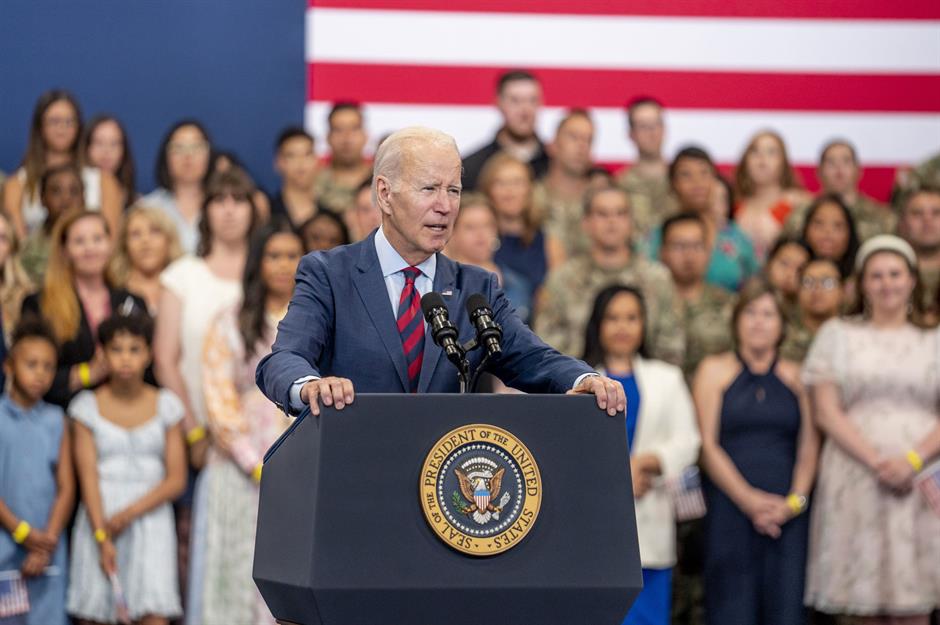
Both Biden and Trump plan to offer America's families extra fiscal support. On top of pledging to cut taxes for regular working people and families with children by around $800 billion over the decade, Biden proposes expanding the Child Tax Credit.
The incumbent POTUS is also calling for the introduction of paid family medical leave, and is pushing for free universal pre-K and community college.
Trumpism: support for families
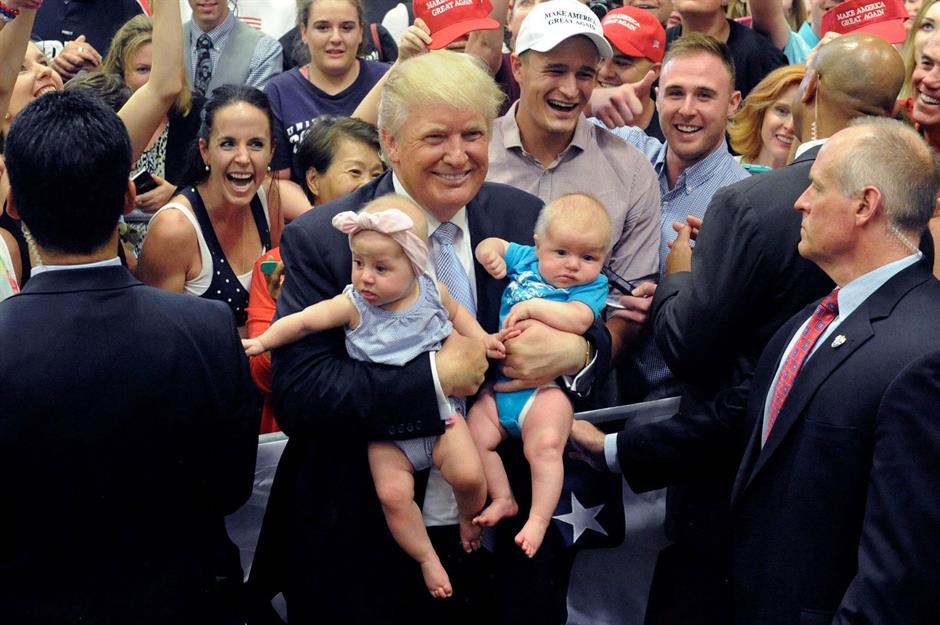
Trump intends to boost America's flagging fertility rate by providing new parents with "baby bonuses" to spark a baby boom.
Moreover, Trump's budget for 2024 contains plans to introduce six weeks of paid leave for new mothers and fathers, organized by states and financed through unemployment insurance.
Bidenomics: support for Ukraine
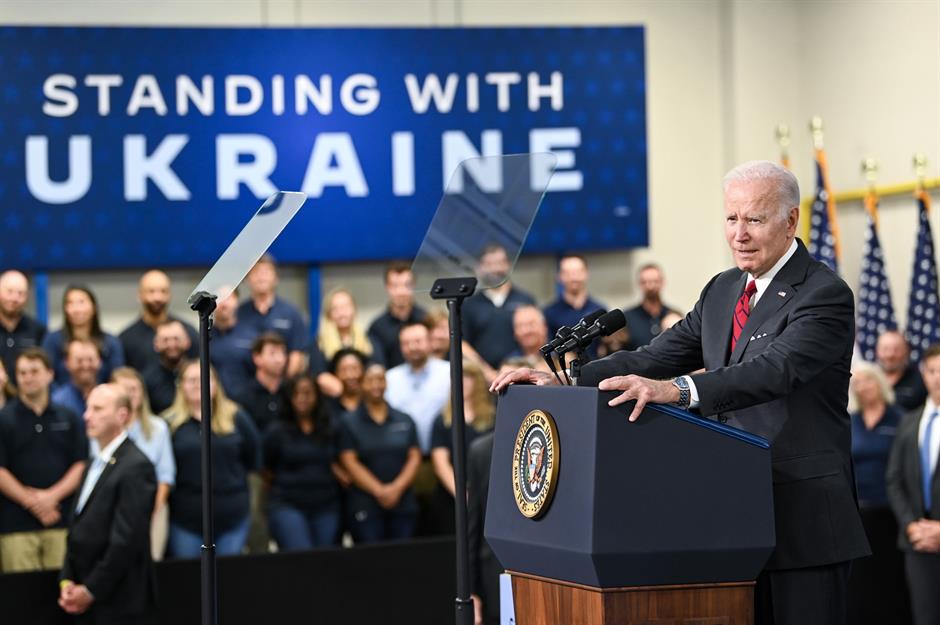
The Biden administration has frequently stressed its unwavering support for Ukraine and has pledged more than $113 billion to Kyiv in financial, military, and humanitarian aid as the nation battles its Russian invaders.
Earlier in September, US Secretary of State Antony Blinken announced new aid for Ukraine totaling more than $1 billion during a visit to Kyiv.
The blank check-writing is likely to carry on if the war continues and Biden wins a second term; in June 2023, he said America will continue to supply aid to Ukraine for "as long as it takes."
Sponsored Content
Trumpism: support for Ukraine

Republicans are divided over US support for Ukraine, with some openly against boosting aid to the country. Trump is among them, having infamously withheld $391 million in American aid to Ukraine back in 2019.
Trump has said America "could end the Ukraine conflict in 24 hours with the right leadership." He's also revealed that he would reevaluate the purpose and mission of NATO should he win a second term, with the intergovernmental organization likely to see its wings clipped should Trump emerge victorious in 2024.
Now discover why Donald Trump's former ally thinks he's an "idiot"
Comments
Be the first to comment
Do you want to comment on this article? You need to be signed in for this feature